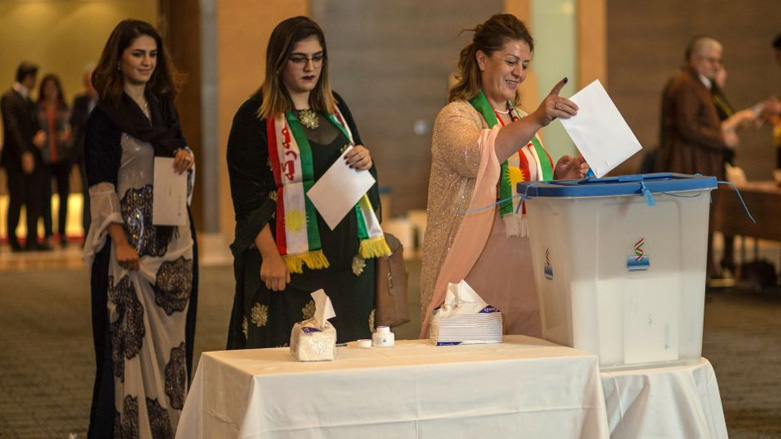Leading Kurdistan Region parties retain seats following Iraq election recount

Following the completion of a manual recount of votes from the controversial May 12 parliamentary elections, Iraq’s Independent High Electoral Commission (IHEC) on Thursday revealed the results, with little changes from the previous outcomes.
The leading parties in the Kurdistan Region retain the seats they won when the preliminary results of the Iraqi parliamentary elections were announced in May.
Results in Erbil, where the Kurdistan Democratic Party (KDP), who won eight seats, and the Patriotic Union of Kurdistan (PUK), who won two seats, remained the same.
In Kirkuk, there was no change in the six seats the PUK had secured in May, as well as the one seat it won in Salahuddin and the one in Diyala.
In Duhok, the PDK’s 10 seats remained the same and it still has its six spots from Nineveh Province.
The results in Sulaimani Province are unchanged with the PUK holding on to its eight seats, Gorran (Change) with four, and the KDP with one.
The 54 seats that influential Shia cleric Muqtada al-Sadr’s Sairoon Coalition won after the May 12 ballots have not changed, the IHEC revealed.
Iran-backed Hadi al-Amiri’s al-Fatih Coalition kept its 47 seats followed by current Prime Minister Haider al-Abadi’s Nasr (Victory) Coalition with its 42 seats.
On Monday, Iraq’s Independent High Electoral Commission (IHEC) announced the completion of the nationwide partial manual recount of the May 12 parliamentary election but canceled part of the process due to complications with ballot boxes that were damaged in a fire two months earlier.
Allegations of fraud and corruption marred Iraq’s elections, leading to the outgoing Parliament passing a law in June which approved the manual recount of votes across the country.
On June 6, the Iraqi Parliament froze the work of the IHEC, assigning nine judges to run the commission to facilitate a manual recount of votes for the entire elections process.
The IHEC, the overseer of the election, began conducting the manual recount on July 3 starting in Kirkuk.
Amid the recount, protests erupted in southern and central provinces of Iraq as people complained about government corruption, a lack of basic services, and ongoing unemployment.